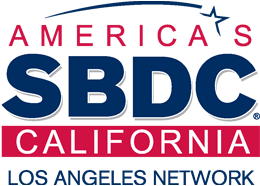More and more small companies are using blogging to promote their business. In fact, in 2012, “small business” was one of the fastest growing categories in Technorati, a global blog search engine, with 20 percent growth that year alone (source: Small Business Blogging Proved Effective for the Year 2012 by Rahul Manekari).
Why? Blogs are a great tool for connecting with your customers and sharing your expertise. They also improve your company’s search engine rankings. Search engines love fresh, relevant and local content—and blogs deliver on this need.
While you’re busy wondering what you should be writing about (the articles at the end of this blog offer tips on that), it’s important to assess any potential legal risks you might be taking. Think about it: many bloggers combine original content that they’ve written with quotes, references and even ideas from other bloggers. But at what point does this become plagiarism or an infringement of copyright? Likewise, if you’re planning on showcasing customer quotes or testimonials in your blogs, is this even legal?
Here are five tips for ensuring you stay out of legal trouble as you write your business blog!
Don’t Get Slammed for Copyright Infringement
Copyright infringement is the number one reason that bloggers get into trouble. Never copy or paste the content of others, whether it’s words, images, video or music, unless you have written permission to do so. For a deeper dive into this topic (in plain English) read: Can You Use or Reproduce the Work of Others on Your Website or Blog?
If you do reference the work or opinion of others, give them credit (you can see an example in the opening paragraph of this blog).
Don’t Bash the Competition
Blogging is about building community and trust, and helping customers feel good about doing business with you. It’s not a vehicle for bashing the competition, price comparisons, or other marketing tactics. Blog writing lends itself to a conversational voice, so slamming the completion can often come across as “catty” and unprofessional. That’s not to say you can’t talk about your products or business in the context of the competition, but focus on how you are different (how your products are made, how people use them, or how to get more out of them)—not how bad/poor/expensive the competitive marketplace is.
Be Careful When Mentioning Customers by Name
A great way to differentiate yourself is to have customers share their experiences of doing business with you. A nice quote or interview with a satisfied customer would make for a great blog topic. But wait, did you know you must have written permission from a customer before you can use their name or endorsement? The Federal Trade Commission enforces regulations that govern how customer endorsements are used in marketing materials. For a few quick pointers on how to abide by these regulations, plus tips on using customer testimonials in your marketing materials or blogs read: “Great Service, Will Use Again”: How to Use Customer Testimonials to Market Your Business.
Be Truthful About Any Claims You Make About Your Business
The FTC has clear guidelines on what constitutes “truth in advertising” or “misleading claims”. So be sure that any claims you make about your business or its products and services are correct and can be backed up. This is especially true if you are sharing blogging duty with other employees. If you’re not sure when you might be crossing the line in praise of your products, check out the rules. More info here: How Lawful Are Your Small Business’ Advertising Claims? – Tips for Getting it Right.
Understand Third Party Blog Terms of Service
If you use a third party blog tool to host your blog, familiarize yourself with its terms of service. For example, who has intellectual property rights for the content you post and what procedures are in place if you believe your intellectual property has been violated? How can that third party use that content? Many blogging sites have terms of service that grant that party a license to host, store, reproduce, modify, publicly display and distribute your content. If this is of concern, then you may want to consider hosting your blog on your own website.
Related Articles
- Thinking of Starting a Blog? Tips to Help You Start, Maintain & Grow a Small Business Blog!
- 8 Tips for Keeping your Business Blog, Current, Relevant and Fresh
- Give Your Blog a Boost – How to Find and Work with Guest Bloggers
- How to Get More Tweets, Likes and Other Shares on Your Blog Posts
- Never Run Out of Blog Topic Ideas: Here are 36
- 10 Often Overlooked Ways to Get Traffic to Your Blog





